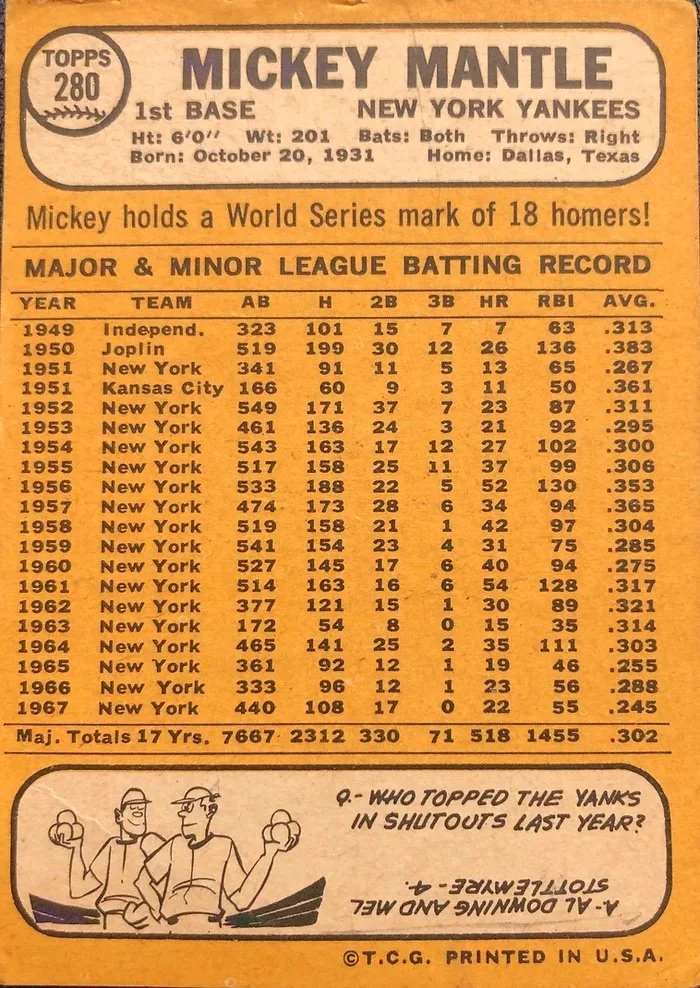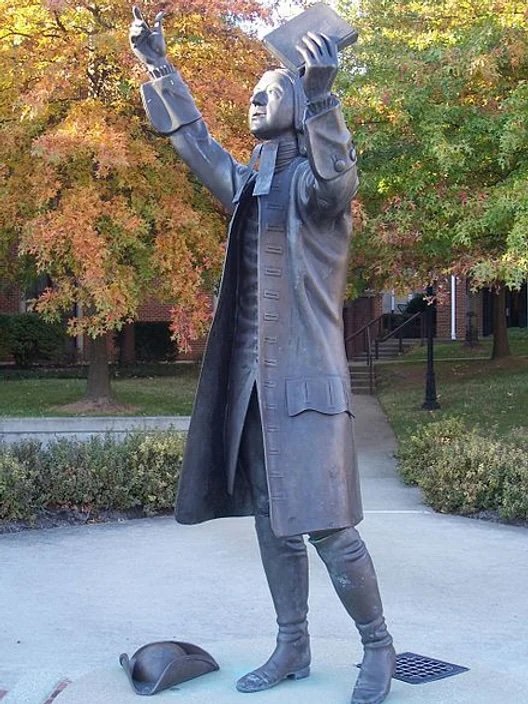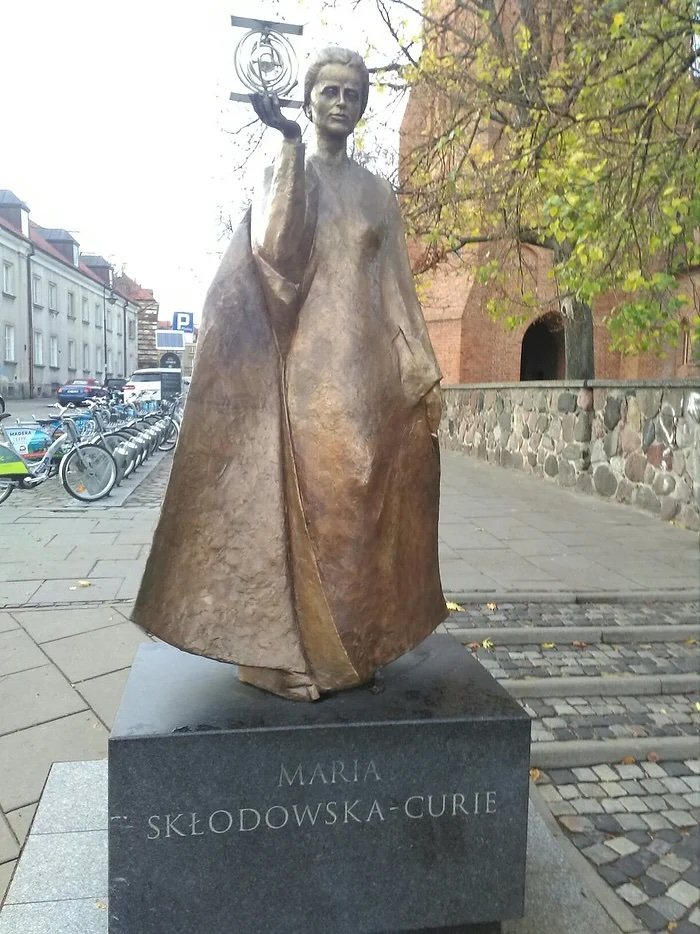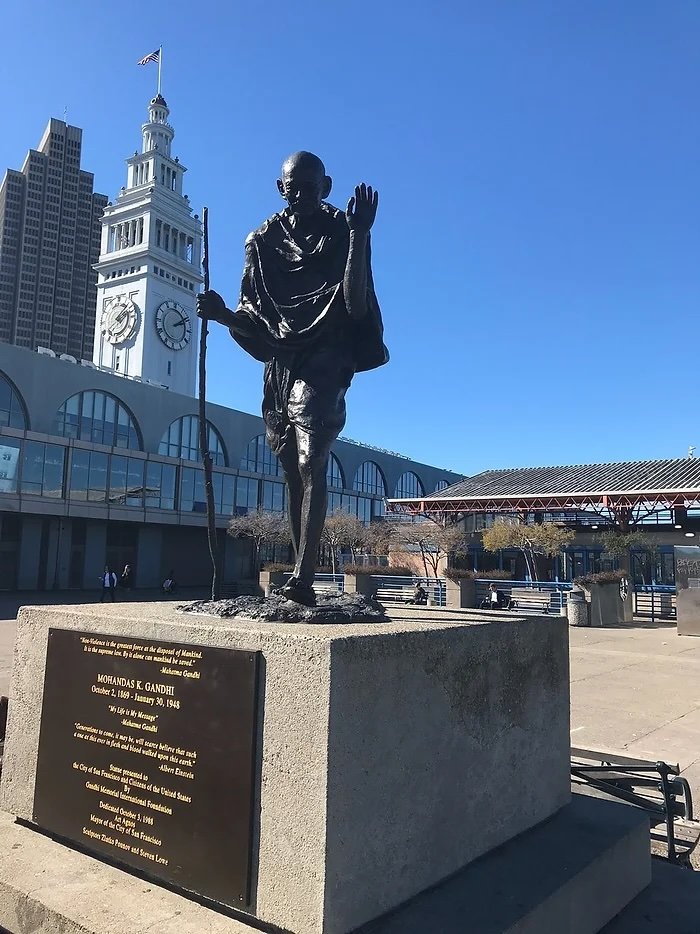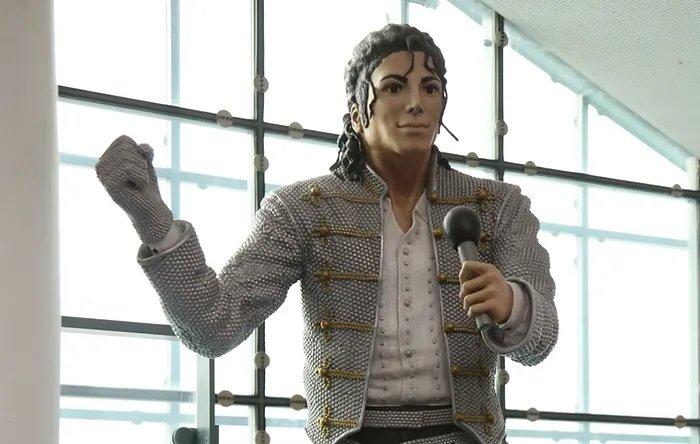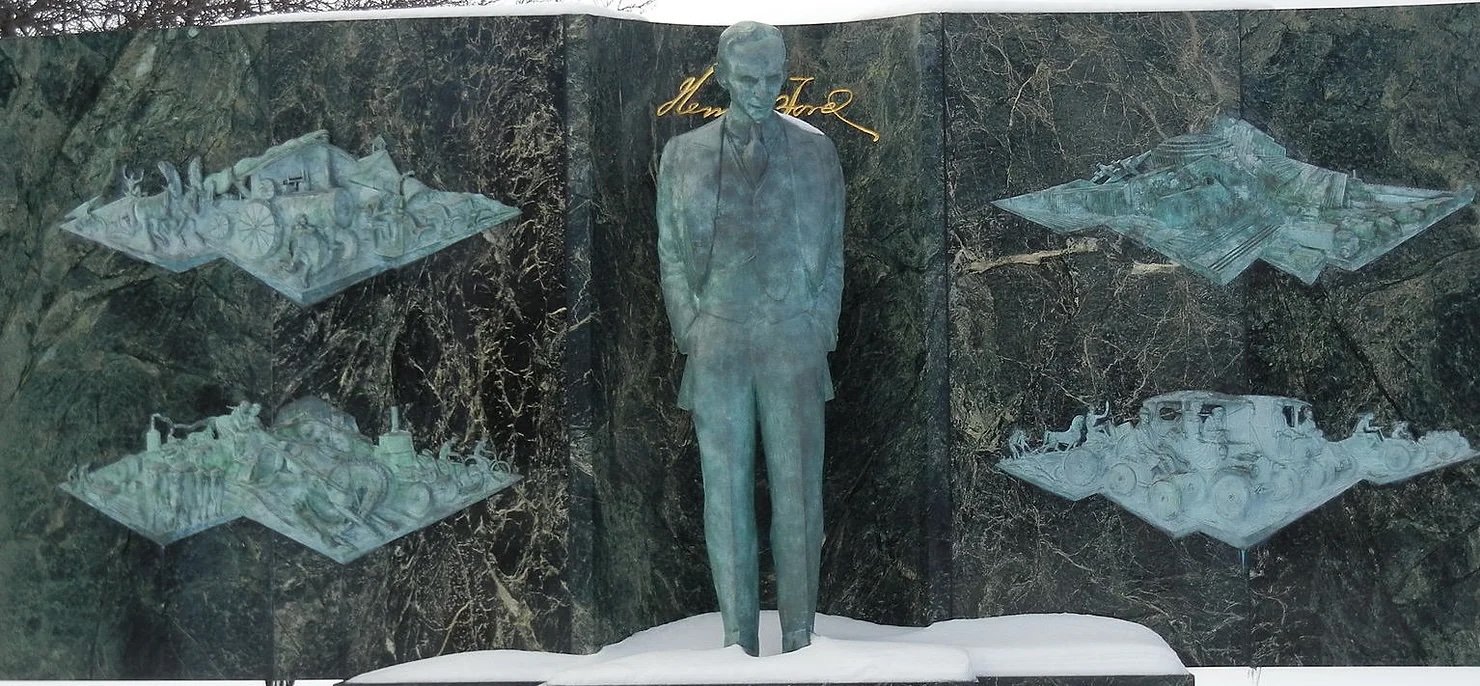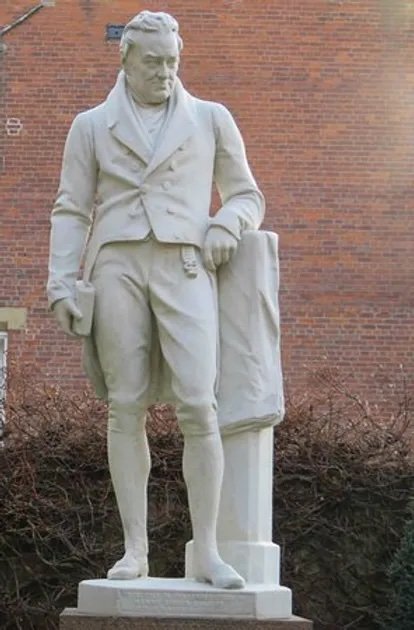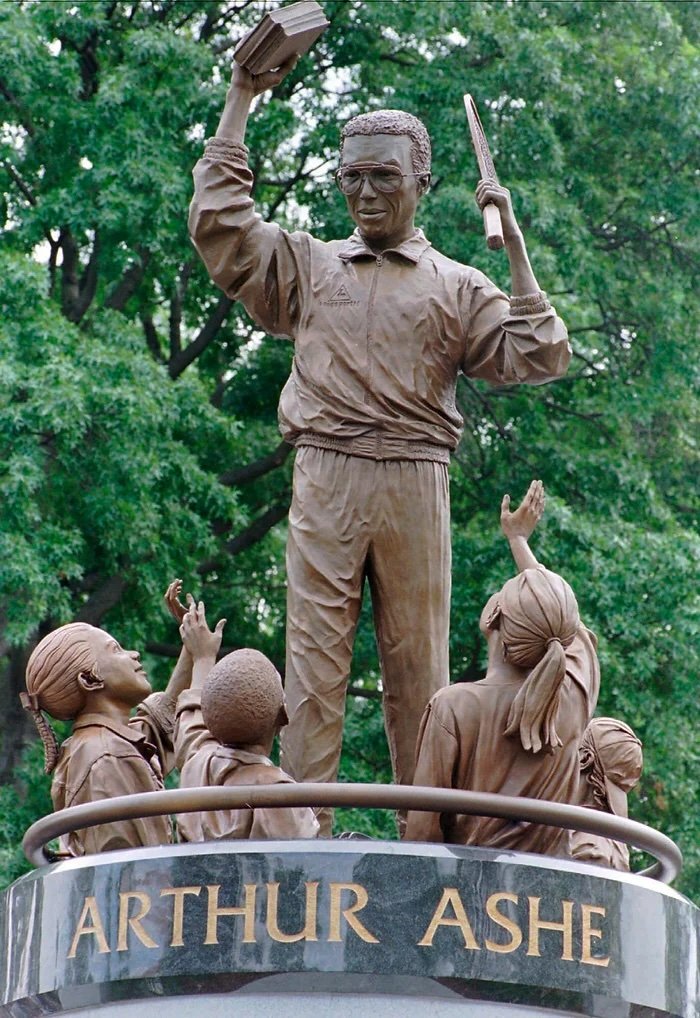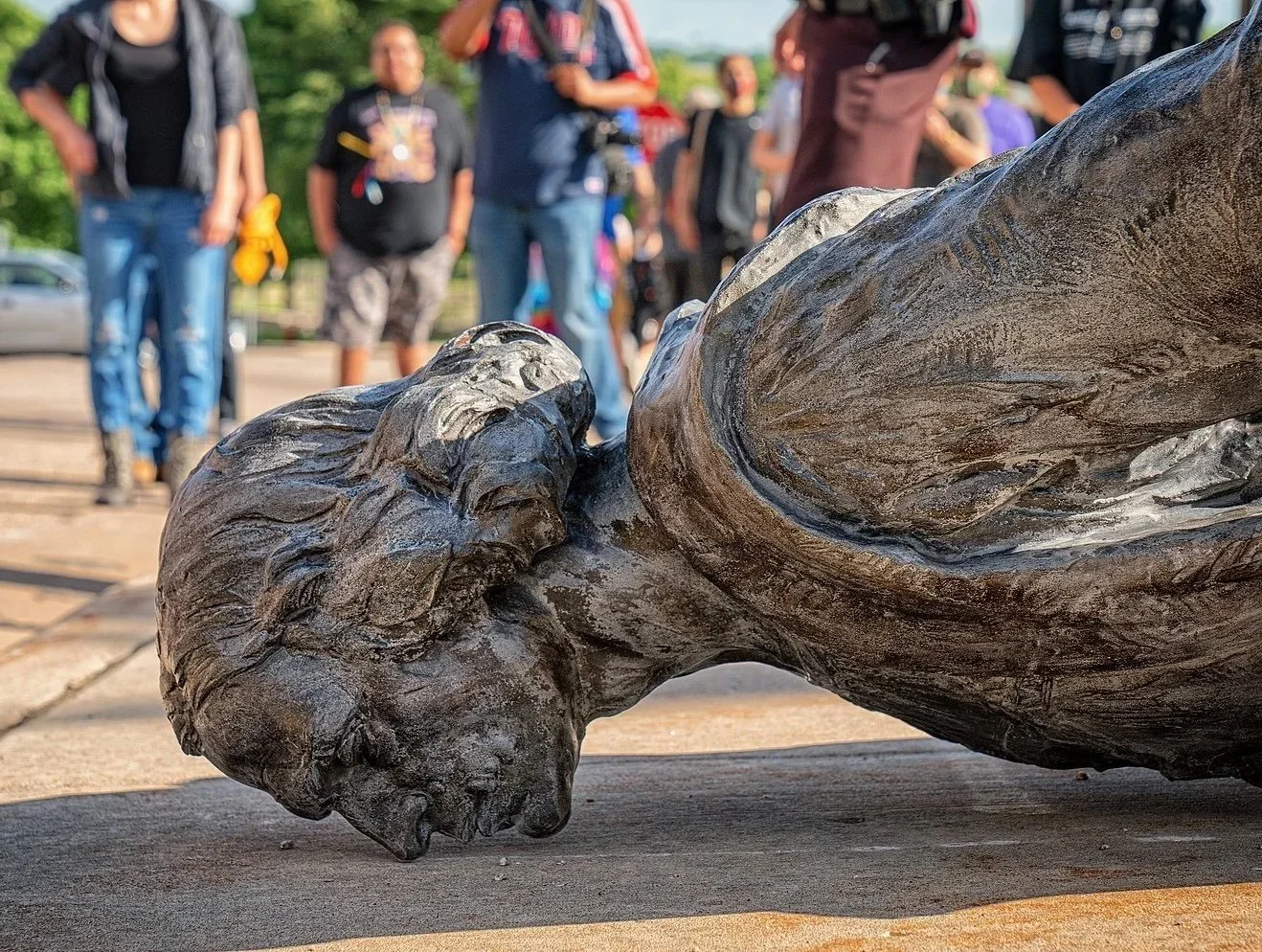What makes a person statue-worthy? (and the life-enhancing lessons we can learn while deciding)
Are there great people? Do statues honoring anyone make sense?
When I was eight, I collected baseball and football cards. I'd study the stats on the back and learn who the best players were.
Cards I still have to this day.
By the time I was 18, I realized that the correlation between best player and best person was weak. Problem is, there aren't any stats to figure out who the best people are. At least not yet.
When I taught 8th grade history, I tried something. I asked my students to create a "historical role model" card.
"Like a sports card, the front should have a picture of the 'player.' The back must include a summary of accomplishments - rationale for your person's role model status."
The point of the assignment was to get kids thinking about what makes a person "great." I didn't do a good job of making my point, though, mostly because I hadn't thought deeply about it myself. I was asking students to identify "great" people without providing them clear criteria for greatness.
Is it being able to master a sport? Being an iconic singer, dancer, painter, actor or musician? Are the richest people great? The smartest? The strongest? The prettiest? The kindest? Do you have to do something great (cure a disease, invent something transformative) or be someone great (a fantastic friend or parent)?
Do "great" people come only from certain professions? If so, besides athletics, art and entertainment, which ones? Business? Politics? Military? Science? History books are primarily filled with people from those vocations.
What about the best plumber, nurse, preschool teacher or school custodian? Can people working only for themselves and a relatively small number of clients qualify as great? Do they deserve a card? (Or statue?) Or do you have to be a leader and affect multitudes?
It's been over 20 years since the historical role model assignment. I didn't get it right then, but today's statue controversy has rekindled my interest in great lives. A statue, afterall, is kind of like a big, fancy historical role model card. Did those who sculpted or commissioned statues of people unworthy of that honor, in effect, fail the historical role model assignment?
So my quest to find historical role models - statue-worthy people - continues. While searching, my original question - "What makes a person great?" - has evolved into a much larger, more personal and relevant-to-everyone question:
What makes a great life?
1. It should live up to public school founder Horace Mann's belief that you should...
“Be ashamed to die until you have won some victory for humanity.”
So, let's make "winning a victory for humanity" a statue starting point. As cliche' as it sounds, making the world a better place is not just a statue prerequisite. It deepens happiness, contentment and satisfaction, all of which are ingredients for a great life.
2. Character flaws and mistakes made can not cause great harm or devastating pain.
What's "great" harm and "devastating" pain? That can and should be debated, but it's usually pretty obvious. No matter how spectacular someone's achievements or contributions are, a huge character negative - emphasis on that relative adjective huge - may make an achiever a lousy role model (and non-statue-worthy).
3. Positives can eclipse (some) negatives.
No matter who it is, especially in today's world, faults will be found. Even terrific people, if watched 24/7, will, at some point in their life, say something or do something they wish they hadn't said or done.
The question is, by how much does the good given outweigh the damage done? For the true statue-worthy, the positives crush the negatives.
Wesley's Statue in Wilmore, Kentucky
Take, for example, John Wesley:
A Brit, he was against the American Revolution. He said those living in the Colonies should "fear God and honor the king." And he wasn't a very good husband.
I'm betting, for those reasons, many would like to tear down his statue. But that would be because they didn't pay attention to #3.
He fought for prison reform, advocated for women preachers and worked to abolish slavery. By the end of his life, he was considered "the best loved man in England." He started a religion, Methodism, and wrote this:
Do all the good you can,
By all the means you can,
In all the ways you can,
In all the places you can,
At all the times you can,
To all the people you can,
As long as you ever can.
What do you think? Does Wesley's good smash Wesley's bad?
Curie's Statue in Lublin, Poland
Marie Curie dated her late husband's former student (who was married). A pre-Internet scandal followed. Does that make her unworthy of her statue?
How could it? She may be the OG historical role-model for everyone, but especially for young women. (Several of my students chose her.) The two-time Nobel Prize winner (chemistry and physics) was a century ahead of her time. Her work ethic and commitment to science are legendary. (Her biopic, Radioactive, is on Amazon.)
Behind San Francisco's Ferry Building is this statue of Gandhi. Whenever I'd take my class on a field trip to the City, we'd gather around it to take roll. Then I'd call attention to my favorite Gandhi quote, written on the statue's base:
"My life is my message."
So good, right? But Gandhi had some unusual sexual behaviors and beliefs, so will his statue last? I hope so. If it doesn't, where will teachers take roll?
Wesley, Curie and Gandhi's lives had relatively tiny taints. If their lives were a basketball game their final score might be something like:
Positives 112
Negatives 48
An epic blow out.
What about Michael Jackson?
For most who loved his music, it's excruciatingly hard to cancel him. He thrilled so many for so long. But the child sexual abuse accusations against him were at least part of the reason why the National Football Museum in Manchester, England removed this statue.
Henry Ford figured out how to mass produce automobiles. When few others would, he provided jobs to thousands. Not only did he hire large numbers of women, the physically disabled and African Americans, he paid them the same wages he paid white men. When Ford died in 1947, Blacks made up the largest percentage of people attending his memorial.
But he was an antisemite, despised labor unions and took advantage of many of the African-Americans he hired, assigning them to the more dangerous jobs. And many question whether his making it possible for almost anyone to own an automobile was a good or bad thing.
One of many Ford statues in Dearborn, Michigan
Final score for Ford? Although I understand why he's honored, I say the negatives win 99-95 in overtime. Despite what he accomplished, it's tough to honor anyone who spoke so hatefully about an entire group of people. He's a historical figure, not a historical role model.
Are there any statues where you can't find taints or flaws, big or small in the human being it's honoring?
I did a Google-search of a bunch of "great" people (with statues) preceded by "bad things about __________" wondering if anything terrible would turn up. I found two whose lives seem unsullied.
The first, William Wilberforce, was a mentee of Wesley. He was elected to the British Parliament at 21. He spent 45 years battling to abolish the slave trade and (ultimately) slavery in the British Empire.
Unlike his mentor, Wilberforce had a strong marriage, and was a devoted daddy. When he wasn't fighting slavery, his side hustle was starting the Royal Society for the Prevention of Cruelty to Animals which led to today's SPCA.
The only dirt on him wasn't even on him. Some thought his posthumously written (by his sons) biography didn't give enough credit to his partner, Thomas Clarkson, for the abolition of slavery.
So, unless the pro-slavery, anti-love, animal haters get to it, William Wilberforce's statue will probably be left alone.
Arthur Ashe's statue should have been safe. My all-time favorite athlete won Wimbledon and the U.S. Open, but it wasn't just his athletic accomplishments that made him statue-worthy. His off-court contributions undeniably won a victory for humanity. After reading his memoir, Days of Grace, Ashe became one of my historical role models.
Brilliant but humble, competitive but compassionate, he was (and is still) a powerful force for civil rights and economic equality. I wish I could have been his friend. I know he would have inspired me to be better and do more.
Arthur died in 1993 from HIV/AIDS. (He was accidentally given AIDS-infested blood while undergoing heart surgery.) On his deathbed, he was still curious about the virus, asking about his T-cell counts and imploring his doctors to use his death to learn how they might prolong life for others.
After hearing that his statue in Richmond was vandalized, I seethed. I bet the haters who did it have no idea what kind of man Ashe was. He's the kind of person I want my students to learn about, learn from and emulate. Days of Grace, should be part of the new Cal-State ethnic studies curriculum.
Wilberforce and Ashe probably weren't perfect, but they were great. They're contrary evidence to the notion that no one is statue-worthy. If we look hard and think harder, we can find people who lived (or are living) statue-worthy lives.
How about Mitch Albom? There's a plaque honoring him in the Detroit airport but no statue. If there was, I'd use it as a teaching tool. I'd point out how he pursued his interests - music, journalism and writing - became super successful, made a lot of money, then used some of that money to open an orphanage in Haiti. In Finding Chika, he writes about how he "adopted" one of those orphans.
"Work hard at what interests you," I'd tell my students.
"And if you're rewarded with a lot of money, consider using it to 'win a victory for humanity,' like Album did."
Or how about a set of statues commending the work of Akashinga (the brave ones) and The Black Mamba Anti-Poaching Unit? (Why don't we have more statues of groups who are improving the world?)
We don't need statues to teach kids (or us) about Mitch Albom, Akashinga or The Black Mamba Anti-Poaching Unit, but honoring them that way would give them more credibility and respect. Their statues would encourage us to think about and share their stories. Their statues might motivate us to live with more purpose.
Even if we take down a statue, let's make it a teaching moment. Why not leave at least a remnant of it, then explore why was the statue there in the first place?
Did we learn something new and negative about the statue-honored person? Or, did that person so something admired (by some) in the past - like fight for the Confederacy - but not admired (by most) today? Did we focus only on the person's achievement(s) and ignore the person's character? If you do something great enough, does character matter?
To draw contrast with the statues dismantled because of bad character or questionable achievement, erect the Album, Akashinga/Black Mamba Anti-Poaching Unit-type statues next to or on top of the remains.
Presenting opportunities for education and contemplation is especially important with the iconic but now questioned statues - Washington, Jefferson, Columbus... Allow them to stand, but with asterisks.* Find creative ways to reacquaint visitors with their ahead-of-their-time ideas and unprecedented achievements, but also point out why their "greatness" is being questioned.
We can use their statues to study their lives so we can live ours better. What were their strengths? How were they deficient? What human behaviors and practices were "accepted" during their time (owning slaves, for example) that are considered abhorrent today?
How have our values evolved? How has what we consider a great person or a great life evolved? If Washington, Jefferson or Columbus were alive today, what would they be like?
Whether they fully remain or not, whether the people they memorialize fully deserved it or not, statues have value. Their presence can motivate us to to think about and, in some cases, reconsider what really makes a great life.
And how we want to live our own.


